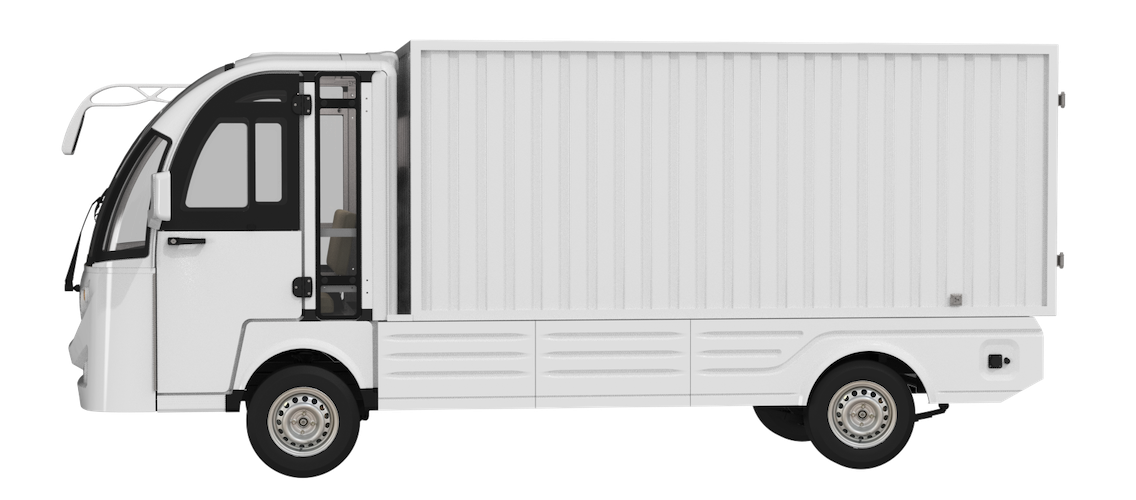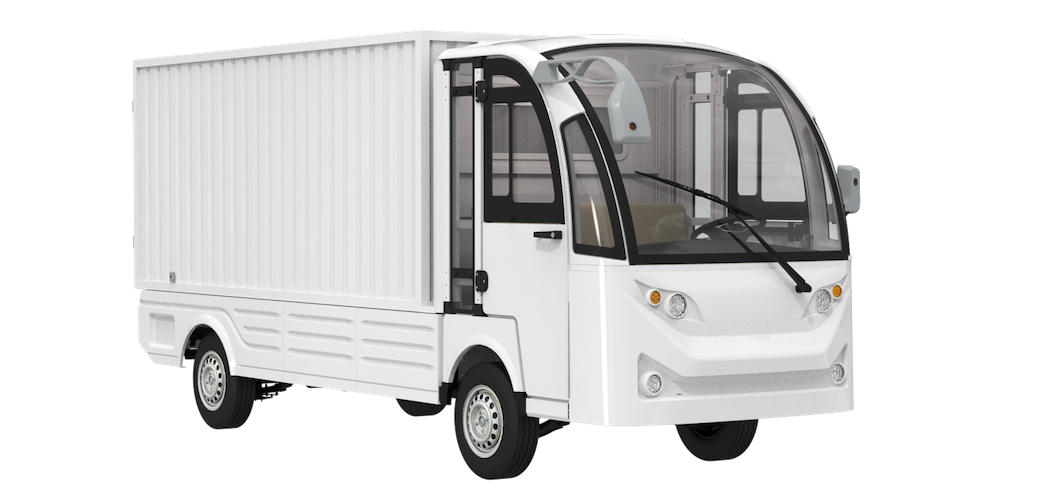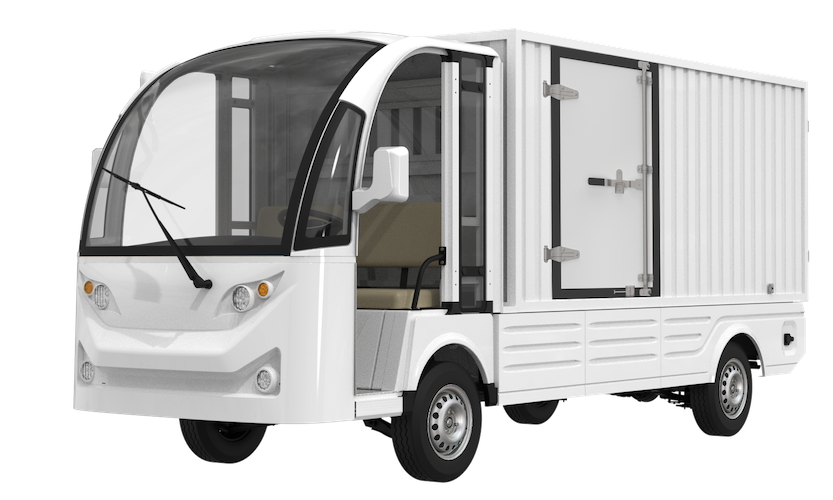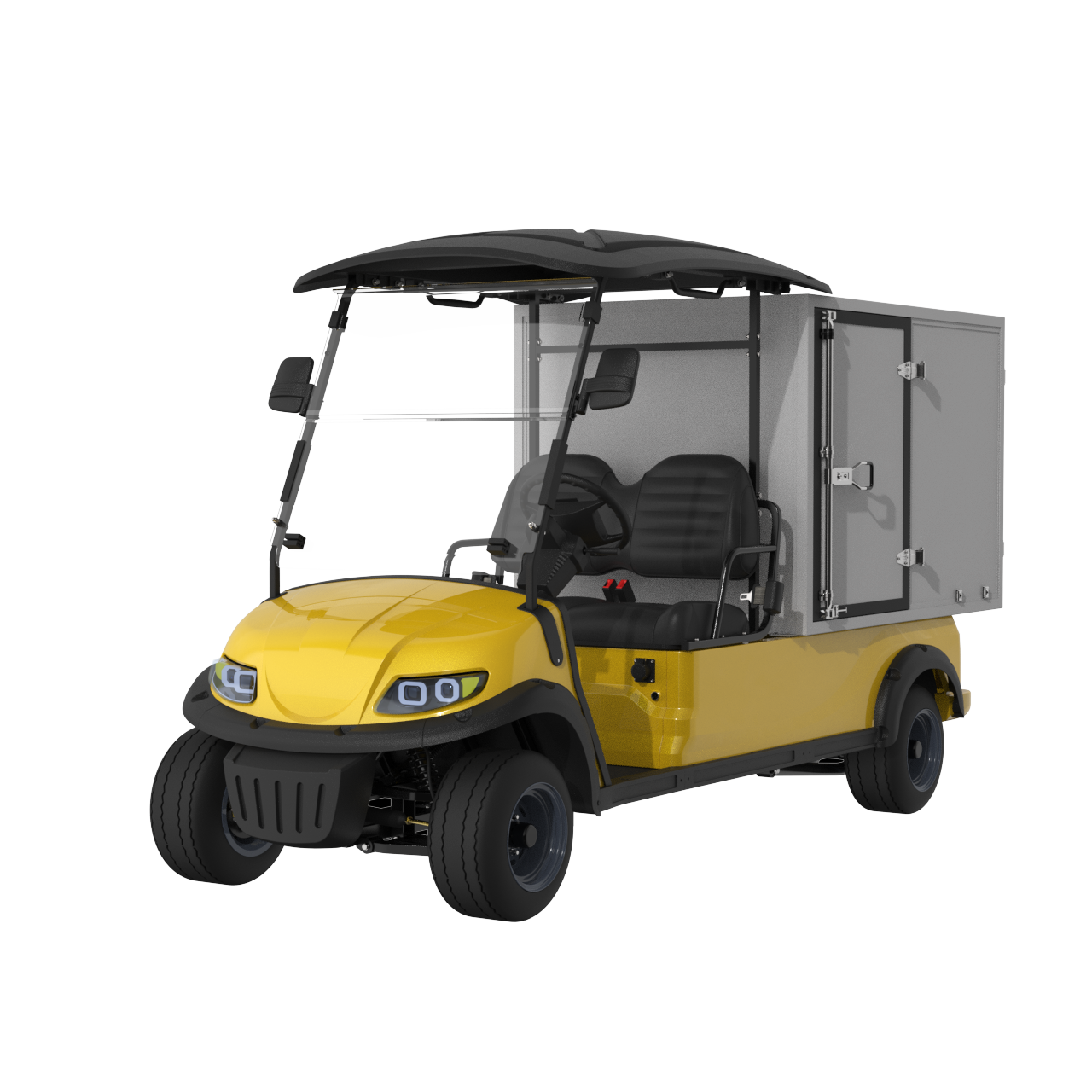Content Menu
● The Rise of Electric Cargo Vehicles in Japan
>> Benefits of Electric Cargo Vehicles
● Leading Electric Cargo Vehicle Manufacturers in Japan
>> Nissan
>> Toyota
>> Mitsubishi
>> Suzuki
>> Isuzu
>> Other Notable Manufacturers
● Key Electric Cargo Vehicle Suppliers in Japan
● Technological Innovations in Japanese Electric Cargo Vehicles
● Market Trends and Future Outlook
>> Future Prospects
● Choosing the Right Electric Cargo Vehicle Manufacturer or Supplier
● Conclusion
● FAQ
>> 1. What are the main benefits of choosing electric cargo vehicles from Japanese manufacturers?
>> 2. How do Japanese electric cargo vehicle suppliers support international customers?
>> 3. What types of electric cargo vehicles are available from Japanese manufacturers?
>> 4. Are there government incentives for importing Japanese electric cargo vehicles?
>> 5. How can I choose the right electric cargo vehicle manufacturer or supplier in Japan?
Japan stands at the forefront of electric vehicle innovation, with a robust ecosystem of manufacturers and suppliers specializing in electric cargo vehicles. As the world shifts towards sustainable transportation, the demand for efficient, eco-friendly cargo solutions is surging. This article explores the top electric cargo vehicle manufacturers and suppliers in Japan, delving into their product offerings, technological advancements, and the market trends shaping the future of electric mobility. Whether you are a business owner, fleet manager, or an enthusiast, this guide provides a comprehensive overview of the Japanese electric cargo vehicle industry.

The Rise of Electric Cargo Vehicles in Japan
Japan's commitment to reducing carbon emissions and promoting clean energy has accelerated the adoption of electric cargo vehicles across various industries. Urban logistics, last-mile delivery, and commercial transportation sectors are increasingly turning to electric cargo vehicles for their efficiency, low operating costs, and environmental benefits.
Benefits of Electric Cargo Vehicles
- Zero Emissions: Electric cargo vehicles produce no tailpipe emissions, contributing to cleaner air in urban environments.
- Lower Operating Costs: Reduced fuel and maintenance expenses make electric cargo vehicles an economically attractive choice.
- Government Incentives: Japanese government policies and subsidies support the adoption of electric vehicles.
- Quiet Operation: Electric motors ensure quieter deliveries, ideal for urban and residential areas.
- Enhanced Maneuverability: Many electric cargo vehicles are designed with compact dimensions and tight turning radii, perfect for navigating congested city streets.
- Improved Safety Features: Advanced driver assistance systems (ADAS) and collision avoidance technologies are increasingly integrated into electric cargo vehicles to enhance safety.
The growing awareness of environmental issues and the rapid expansion of e-commerce have created a perfect storm for electric cargo vehicles to thrive in Japan. The country's dense urban population and strict emission regulations make electric cargo vehicles not only viable but necessary for sustainable urban logistics.
Leading Electric Cargo Vehicle Manufacturers in Japan
Nissan
Nissan is a pioneer in electric vehicle technology, with a strong presence in the cargo vehicle sector. The Nissan e-NV200, an all-electric van, has become a popular choice for businesses seeking sustainable transportation solutions. Its spacious cargo area, reliable battery performance, and advanced safety features make it a top contender in the market.
Nissan's commitment to innovation is evident in its continuous investment in battery technology and smart mobility solutions. The company collaborates with logistics providers to develop customized electric cargo vehicles tailored to specific business needs. Nissan also focuses on integrating telematics and fleet management software to optimize vehicle usage and reduce operational costs.
Toyota
Toyota, renowned for its hybrid and electric vehicle advancements, offers a range of electric cargo vehicles designed for commercial use. The Toyota Proace Electric is a versatile van that combines ample cargo space with efficient electric powertrains. Toyota's focus on durability and reliability ensures that its electric cargo vehicles meet the rigorous demands of daily operations.
Toyota's research and development efforts extend to autonomous driving and connected vehicle technologies, positioning the company as a leader in next-generation electric cargo solutions. Additionally, Toyota is exploring hydrogen fuel cell technology as a complementary solution for heavy-duty cargo transport, aiming to provide a diverse portfolio of clean energy vehicles.
Mitsubishi
Mitsubishi's electric cargo vehicle lineup includes the Minicab MiEV, a compact and agile van ideal for urban deliveries. The Minicab MiEV is celebrated for its maneuverability, low running costs, and environmentally friendly performance. Mitsubishi's expertise in electric powertrains and battery management systems underpins its reputation as a trusted manufacturer.
Mitsubishi is also investing in modular vehicle platforms that allow for easy customization of electric cargo vehicles to suit various business needs, from refrigerated transport to parcel delivery. Their focus on lightweight design and energy-efficient components helps extend driving range and reduce total cost of ownership.
Suzuki
Suzuki has entered the electric cargo vehicle market with a focus on compact, efficient models suitable for city logistics. Suzuki's electric cargo vehicles are designed to navigate narrow streets and congested urban areas, making them a preferred choice for small businesses and delivery services.
Suzuki emphasizes affordability and practicality, offering electric cargo vehicles that balance performance with cost-effectiveness. Their vehicles often feature innovative storage solutions to maximize cargo capacity within a compact footprint, ideal for dense urban environments.
Isuzu
Isuzu, a heavyweight in commercial vehicles, is actively developing electric cargo trucks and vans to meet the evolving needs of the logistics industry. Isuzu's electric cargo vehicles are engineered for durability, payload capacity, and energy efficiency, catering to both urban and long-haul applications.
Isuzu is pioneering the integration of electrification with traditional diesel technology, offering hybrid models as transitional solutions while fully electric models continue to advance. Their commitment to robust chassis design and advanced battery technology ensures that Isuzu electric cargo vehicles can handle demanding workloads.
Other Notable Manufacturers
- Honda: Known for its innovative approach, Honda is exploring electric cargo vehicle concepts with a focus on modularity and adaptability. Honda's efforts include small electric trucks and vans that can be configured for different cargo types and delivery requirements.
- Daihatsu: Specializes in small electric vans and trucks optimized for short-distance deliveries. Daihatsu's compact electric cargo vehicles are popular in suburban and rural areas where maneuverability and efficiency are critical.
- Hino Motors: A subsidiary of Toyota, Hino is investing in electric and hybrid commercial vehicles for large-scale logistics. Hino focuses on heavy-duty electric trucks with advanced powertrain systems designed to reduce emissions without sacrificing performance.

Key Electric Cargo Vehicle Suppliers in Japan
Japan's electric cargo vehicle ecosystem is supported by a network of suppliers providing essential components and systems:
- Battery Manufacturers: Companies like Panasonic and GS Yuasa supply high-performance lithium-ion batteries for electric cargo vehicles. These batteries are engineered for longevity, safety, and fast charging capabilities, which are critical for commercial operations.
- Motor and Powertrain Suppliers: Denso and Hitachi Automotive Systems deliver advanced electric motors and power electronics. Their innovations include compact, high-efficiency motors that maximize range and power output.
- Charging Infrastructure Providers: Firms such as the CHAdeMO Association and ENECHANGE develop fast-charging solutions for commercial fleets. These companies are instrumental in expanding the charging network across Japan, enabling longer routes and quicker turnaround times.
- Electronic Control Units (ECUs) and Software Providers: Japanese suppliers also offer sophisticated vehicle control systems that optimize energy consumption, monitor battery health, and provide real-time diagnostics to fleet operators.
These suppliers play a crucial role in ensuring the reliability, efficiency, and scalability of electric cargo vehicle production in Japan. The close collaboration between manufacturers and suppliers fosters rapid innovation and high-quality standards.
Technological Innovations in Japanese Electric Cargo Vehicles
Japanese manufacturers and suppliers are at the cutting edge of electric cargo vehicle technology. Key innovations include:
- Advanced Battery Management Systems: These systems enhance battery life, safety, and charging speeds by precisely monitoring temperature, voltage, and current. They also enable predictive maintenance to avoid unexpected downtime.
- Lightweight Materials: The use of aluminum, carbon fiber composites, and high-strength steel reduces vehicle weight, improving energy efficiency and payload capacity.
- Telematics and Fleet Management: Integration of IoT devices allows real-time tracking, route optimization, and predictive maintenance, helping fleet managers reduce costs and improve service reliability.
- Autonomous Driving Features: Development of self-driving cargo vehicles aims to improve safety and operational efficiency, especially in controlled environments like warehouses and ports.
- Regenerative Braking Systems: These systems recover energy during braking, extending driving range and reducing wear on brake components.
- Modular Vehicle Platforms: Allowing manufacturers to quickly adapt vehicles for different cargo types and operational requirements, enhancing versatility and reducing production costs.
Moreover, Japanese companies are actively exploring vehicle-to-grid (V2G) technologies, which enable electric cargo vehicles to feed electricity back into the grid during peak demand periods, creating additional value streams for fleet operators.
Market Trends and Future Outlook
The Japanese electric cargo vehicle market is experiencing rapid growth, driven by:
- Urbanization: Increasing demand for last-mile delivery solutions in densely populated cities is pushing companies to adopt compact, efficient electric cargo vehicles.
- E-commerce Boom: The surge in online shopping necessitates efficient, eco-friendly delivery vehicles capable of handling high volumes of parcels.
- Corporate Sustainability Initiatives: Businesses are adopting electric cargo vehicles to meet environmental goals, reduce carbon footprints, and enhance brand reputation.
- Government Policies: Stricter emission regulations and incentives for electric vehicles accelerate market adoption, including subsidies, tax breaks, and preferential access to low-emission zones.
- Global Supply Chain Integration: Japanese manufacturers and suppliers are expanding partnerships with international logistics companies to promote electric cargo vehicles worldwide.
Future Prospects
- Expansion of Charging Infrastructure: Wider availability of fast-charging stations will support larger electric cargo fleets and enable longer routes.
- Technological Advancements: Ongoing R&D will yield longer-range batteries, faster charging, and smarter vehicle systems that improve operational efficiency.
- Global Collaboration: Japanese manufacturers and suppliers are partnering with international firms to expand their reach and share best practices.
- Diversification of Powertrains: Beyond battery electric vehicles, hydrogen fuel cells and hybrid systems will complement the electric cargo vehicle lineup, addressing diverse logistics needs.
- Increased Customization: Manufacturers will offer more tailored solutions, including refrigerated cargo, hazardous material transport, and multi-modal vehicle designs.
The electric cargo vehicle industry in Japan is not only growing domestically but is also positioning itself as a global leader in sustainable commercial transportation solutions.
Choosing the Right Electric Cargo Vehicle Manufacturer or Supplier
Selecting the ideal electric cargo vehicle manufacturer or supplier involves several considerations:
- Product Range: Evaluate the variety of electric cargo vehicles offered, including vans, trucks, and specialty vehicles.
- Customization Options: Assess the ability to tailor vehicles to specific operational needs, such as cargo type, range requirements, and vehicle size.
- After-Sales Support: Reliable maintenance, parts availability, and customer service are essential for minimizing downtime.
- Reputation and Track Record: Choose manufacturers and suppliers with proven expertise and positive industry reviews.
- Cost and Financing: Compare pricing, warranty terms, and available financing options to find the best value.
- Technological Compatibility: Ensure that the vehicles support integration with your existing fleet management and telematics systems.
- Sustainability Credentials: Consider manufacturers with strong commitments to environmental standards and corporate social responsibility.
Engaging directly with manufacturers and suppliers, requesting detailed proposals, and conducting pilot tests can help businesses make informed decisions that align with their operational and sustainability goals.
Conclusion
Japan's electric cargo vehicle manufacturers and suppliers are driving the transformation of commercial transportation. Their commitment to innovation, quality, and sustainability positions Japan as a global leader in electric cargo solutions. Businesses seeking reliable, efficient, and environmentally friendly cargo vehicles will find a wealth of options among Japanese manufacturers and suppliers. As technology continues to evolve and market demand grows, Japan's electric cargo vehicle industry is set to play a pivotal role in shaping the future of logistics and urban mobility.

FAQ
1. What are the main benefits of choosing electric cargo vehicles from Japanese manufacturers?
Japanese electric cargo vehicle manufacturers are known for their advanced technology, reliability, and commitment to sustainability. Their vehicles offer zero emissions, lower operating costs, and access to cutting-edge features that enhance safety and efficiency.
2. How do Japanese electric cargo vehicle suppliers support international customers?
Many Japanese suppliers provide comprehensive OEM services, customization options, and global logistics support, ensuring seamless integration for overseas brands, wholesalers, and manufacturers. They also assist with compliance and certification processes required for different markets.
3. What types of electric cargo vehicles are available from Japanese manufacturers?
Japanese manufacturers offer a wide range of electric cargo vehicles, including compact vans, large trucks, and specialized vehicles designed for various industries such as logistics, retail, construction, and refrigerated transport.
4. Are there government incentives for importing Japanese electric cargo vehicles?
Yes, many countries offer incentives for electric vehicle imports, and Japanese manufacturers often assist with documentation and compliance to help customers benefit from local subsidies and tax breaks.
5. How can I choose the right electric cargo vehicle manufacturer or supplier in Japan?
Consider factors such as product range, customization capabilities, after-sales support, reputation, and cost. Engaging with manufacturers directly and requesting detailed proposals can help ensure the best fit for your business needs.



















































